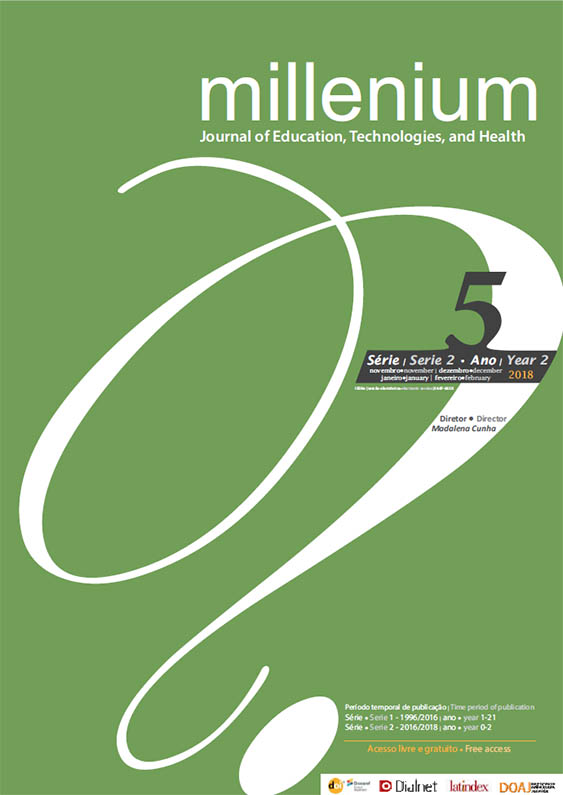Ethics and a proposal to use unused data in scientific work
DOI:
https://doi.org/10.29352/mill0205.02.00166Keywords:
Unused data, Methodology, Knowledge, EthicsAbstract
Introduction: All scientific work in the social sciences don’t use all collected data and exclude elements that won´t be part of the result. This data can be useful to other researches, but it has ethic problems that difficult their use.
Objectives: Develop a methodology to use the data not analysed and propose an ethical interpretation that facilitates its use.
Methods: It was used the procedures and steps of a construction of an research project, having as a centre one methodological area and problem.
Results: The creation of a proposal of one methodology specifically destined to the use of unused data, open and flexible.
Conclusion: The utility of the use, not only of unused data, but also, all elements of a social research, that will benefit all knowledge. In the field of ethics, the focus is in the question of protecting communities, participants and the researcher. The ethical questions are too complex to be treated in one only article.
Downloads
References
Bernard, H. R & Ryan, G. W. (2010). Analysing Qualitative Data: Systematic Approaches London: Sage Publications, Ltd.
Camalhão, I. e Camalhão, S. (2017), Os “despojos” do trabalho científico em Ciências Sociais: O potencial do conhecimento dos “restos”. 6º Congresso Ibero-Americano em Investigação Qualitativa de 12 a 14 de julho de 2017. Salamanca, Espanha. Acedido em http://proceedings.ciaiq.org/index.php/ciaiq2017/article/view/1137/1103.
Carpenter D. R. (2013). Método Fenomenológico. In Streubert, H. J. & Carpenter, D. R. (Ed.). Investigação Qualitativa: Avançando o Imperativo Humanista (5 th e. pp. 73 - 96). Loures: Lusodidactica.
Chang, H., Ngunjiri, F. W. & Hernandez, K.-A. C. (2013). Collaborative Autoetnography. Walnut Creek: Left Coast Press inc.
Flick, U. (2005). Métodos Qualitativos na Investigação Científica. Lisboa: Monitor.
Ghiglione, R. & Matalon, B. (1992). O Inquérito: Teoria e Prática. Oeiras: Celta Editora.
Glasser, B. G. (2013). No Preconceptions: The Grounded Theory Dictum. Mill Valley: Sociology Press.
Glasser, B. G. (2007). Doing Formal Grounded Theory: A Proposal. Mill Valley: Sociology Press.
Glasser, B. G. (2001). The Grounded Theory Perspective: Conceptualization Contrasted with Description. Mill Valley: Sociology Press.
Glasser, B. G. (1992). Basics of Grounded Theory Analysis. Mill Valley: Sociology Press.
Glasser, B. G & Strauss, A. L. (1967). The Discovery of Grounded Theory: Strategies for Qualitative Research. New York: Aldine.
Hammersley, M. & Traianou, A. (2012). Ethics in Qualitative Research: Controversies and Context. London: SAGE Publications Ltd.
Paillé, P. & Mucchielli, A. (2009). L'Analyse Qualitative en Sciences Humaines et Sociales. (3 rd ed.). Paris: Armand Colin.
Patton, M. Q. (2015). Qualitative Research & Evaluation Methods: Integrating Theory and Practice (4 th ed.) London: SAGE
Publications Ltd.
Quivy, R. & Campenhoud, L. (2011). Manuel de Recherche en Sciences Sociales. (4 th ed.). Paris: Dunod.
Miles, M. B & Huberman, A. M. (1994). Qualitative Data Analysis: An Expanded Sourcebook. (2nd ed). London: SAGE
Publications, Ltd.
Ragin, C. C. (2014). The Comparative Method: Moving Beyond Qualitative and Quantitative Strategies. Oakland: University of California Press.
Ricour, P. (2013). Teoria da Interpretação: O Discurso e o Excesso de Significação. Lisboa: Edições 70.
Rodríguez, G. R. (2011). Análisis de Datos Incompletos en Ciências Sociales. Madrid: Centro de Investigaciones Sociológicas.
Rossman, G. B. & Rallis, S. F. (2012). Learning in the Field: An Introduction to Qualitative Research (3 rd ed.). London: SAGE Publications, Ltd.
Saldaña, J (2013). The Coding Manual for Qualitative Researchers (2 nd ed.). London: SAGE Publications, Ltd.
Strauss, A. & Corbin, J. (2008). Basics of Qualitative Research: Techniques and Procedures for Developing Grounded Theory (3 rd Ed.). London: SAGE Publications, Ltd.
Wästerfors, D., Åkerström M. & Jacobsson, K. (2014). Reanalysis of Qualitative Data. In Flick, U. (Ed.). The SAGE Handbook of Qualitative Data Analysis (pp. 467 – 480). London: SAGE Publications Ltd.
Wernet, A. (2014). Hermeneutics and Objective Hermeneutics. In n Flick, U. (Ed.). The SAGE Handbook of Qualitative Data Analysis (pp. 234 – 246). London: SAGE Publications Ltd.
Wolcott, H. F. (2009). Writing Up Qualitative Research (3 rd ed.). London: SAGE Publications Ltd.Research (3ª Ed.). London: SAGE Publications Ltd.
Downloads
Published
How to Cite
Issue
Section
License
Authors who submit proposals for this journal agree to the following terms:
a) Articles are published under the Licença Creative Commons (CC BY 4.0), in full open-access, without any cost or fees of any kind to the author or the reader;
b) The authors retain copyright and grant the journal right of first publication, allowing the free sharing of work, provided it is correctly attributed the authorship and initial publication in this journal;
c) The authors are permitted to take on additional contracts separately for non-exclusive distribution of the version of the work published in this journal (eg, post it to an institutional repository or as a book), with an acknowledgment of its initial publication in this journal;
d) Authors are permitted and encouraged to publish and distribute their work online (eg, in institutional repositories or on their website) as it can lead to productive exchanges, as well as increase the impact and citation of published work
Documents required for submission
Article template (Editable format)





